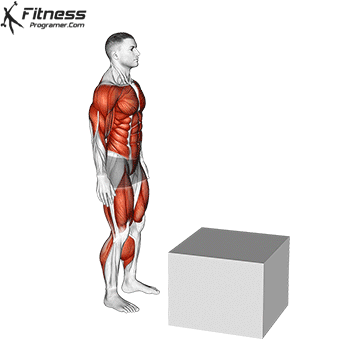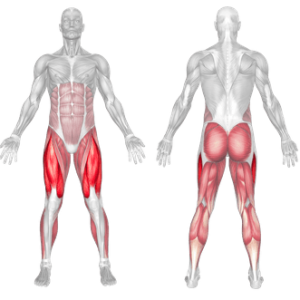The Box Jump

The Box Jump Benefits
- The Box Jump are a plyometric exercise. Plyometrics are explosive aerobic moves that increase speed, quickness, and power and they work your whole body.
- The Box Jump target the abdominal muscles, hip muscles and hip flexors and also work on the thighs, knee tendons and quadriceps.
- Jumps are beneficial to your health because they combine cardiovascular conditioning with strength work. Since jumps elevate your heart rate, they can also improve your cardiovascular fitness.
Muscles Worked in the The Box Jump

